The Commonwealth of Dominica,
commonly known as Dominica - pronounced Dom-in-nee-ka, is an island nation in
the Caribbean Sea. To the north/northwest lies Guadeloupe, to the southeast
Martinique. Its size is 754 square kilometres or 291 square miles and the
highest point in the country is Morne Diablotins, which has an elevation of
1,447 metres or 4,750 feet. The estimated population of 72,500. The capital is
Roseau.
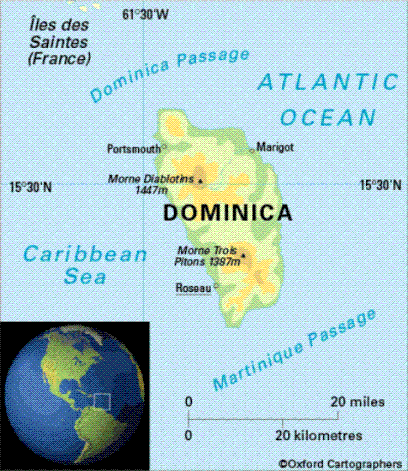

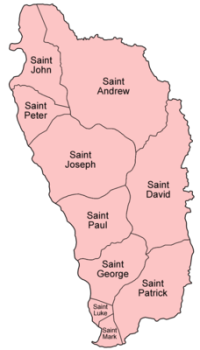
Dominica has
been nicknamed the "Nature Isle of the Caribbean" for its seemingly unspoiled
natural beauty. It is the youngest island in the Lesser Antilles, still being
formed by geothermal-volcanic activity, as seen by the world's second-largest
boiling lake. The island features lush mountainous rainforests, home of many
very rare plant, animal, and bird species. There are xeric areas in some of the
western coastal regions, but heavy rainfall can be expected inland. The Sisserou
parrot, the island's national bird, is featured on the national flag. Dominica's
economy is heavily dependent on both tourism and agriculture.
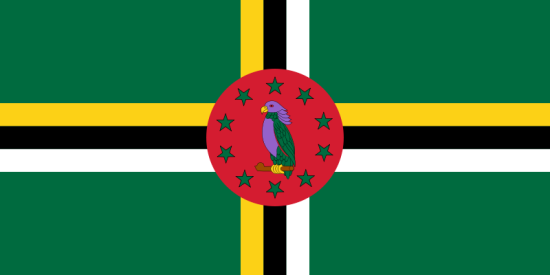
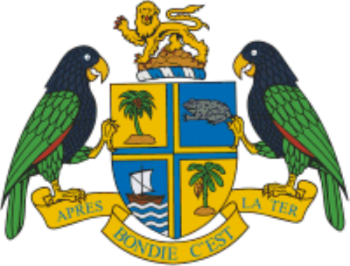
Christopher Columbus landed on the
3rd November 1493, in the next hundred years after Columbus' landing
Dominica remained isolated, and even more Caribs settled there after being
driven from surrounding islands as European powers entered the region. France
formally ceded possession of Dominica to the United Kingdom in 1763. The United
Kingdom then set up a government and made the island a colony in 1805. The
emancipation of African slaves occurred throughout the British Empire in 1834,
and, in 1838, Dominica became the first British Caribbean colony to have a
legislature controlled by Blacks. In 1896, the United Kingdom reassumed
governmental control of Dominica turning it into a crown colony. Half a century
later, from 1958 to 1962, Dominica became a province of the short-lived West
Indies Federation. In 1978, Dominica became an independent nation.
History. In 1635, France
claimed Dominica. Shortly thereafter, French missionaries became the first
European inhabitants of the island. Carib incursions continued, though, and in
1660, the French and British agreed that both Dominica and St. Vincent should be
abandoned. Dominica was officially neutral for the next century, but the
attraction of its resources remained; rival expeditions of British and French
foresters were harvesting timber by the start of the 18th century.
Largely due to Dominica's position between
Martinique and Guadeloupe, France eventually became predominant, and a French
settlement was established and grew. As part of the 1763 Treaty of Paris that
ended the Seven Years' War, the island became a British possession. In 1778,
during the American Revolutionary War, the French mounted a successful invasion
with the active cooperation of the population. The 1783 Treaty of Paris, which
ended the war, returned the island to Britain. French invasions in 1795 and 1805
ended in failure.

The familiar sight of a cruise ship
docked in the capital Roseau.
In 1763, the British established a
legislative assembly, representing only the white population. In 1831,
reflecting a liberalization of official British racial attitudes, the Brown
Privilege Bill conferred political and social rights on free non-whites. Three
Blacks were elected to the legislative assembly the following year. Following
the abolition of slavery, in 1838 Dominica became the only British Caribbean
colony to have a Black-controlled legislature in the 19th century. Most Black
legislators were smallholders or merchants who held economic and social views
diametrically opposed to the interests of the small, wealthy English planter
class. Reacting to a perceived threat, the planters lobbied for more direct
British rule. In 1865, after much agitation and
tension, the colonial office replaced the elective assembly with one that had
one-half of members who were elected and one-half who were appointed. Planters
allied with colonial administrators outmanoeuvred the elected legislators on
numerous occasions. In 1871, Dominica became part of the Leeward Island
Federation. The power of the Black population progressively eroded. Crown Colony
government was re-established in 1896. All political rights for the vast
majority of the population were effectively curtailed. Development aid, offered
as compensation for disenfranchisement, proved to have a negligible
effect.
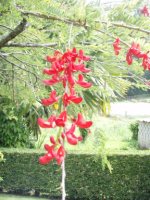


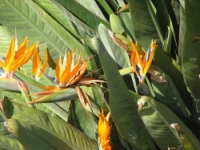
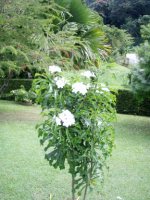
Following World War I, an upsurge of political
consciousness throughout the Caribbean led to the formation of the
Representative Government Association. Marshalling public frustration with the
lack of a voice in the governing of Dominica, this group won one-third of the
popularly elected seats of the legislative assembly in 1924 and one-half in
1936. Shortly thereafter, Dominica was transferred from the Leeward Island
Administration and was governed as part of the Windwards until 1958, when it
joined the short-lived West Indies Federation. After the federation dissolved, Dominica became an associated state of
the United Kingdom in 1967 and formally took responsibility for its internal
affairs. On November 3, 1978, the Commonwealth of Dominica was granted
independence by the United Kingdom. Independence
did little to solve problems stemming from centuries of economic
underdevelopment, and in mid-1979, political discontent led to the formation of
an interim government. It was replaced after the 1980 elections by a government
led by the Dominica Freedom Party under Prime Minister Eugenia Charles, the
Caribbean's first female prime minister. Chronic economic problems were
compounded by the severe impact of hurricanes in 1979 and in 1980. In 1981 Dominica was threatened with a takeover over by
mercenaries.
Attempted Coup
In 1981, a group of right-wing
'mercenaries' led by Mike Perdue of Houston, and Wolfgang Droege of Toronto,
attempted to overthrow the government of Eugenia Charles. The North-America
mercenary group was to aid ex-prime minister Patrick John and his Dominica
Defence Force in regaining control of the island in exchange for control over
the island's future development. The entire plan failed and the ship hired to
transport the men of Operation Red Dog never even made it off the dock as the
FBI was tipped-off. The self-titled mercenaries lacked any formal military
experience and/or training and the majority of the crew had been misled into
joining the armed coup by the con-man ringleader Mike Perdue. White supremacist
Don Black was also jailed for his part in the attempt, which violated US
neutrality laws. Despite the amateurishness of the attempt, most students of the
affair believe it could well have toppled the weak and ramshackle Charles
government.
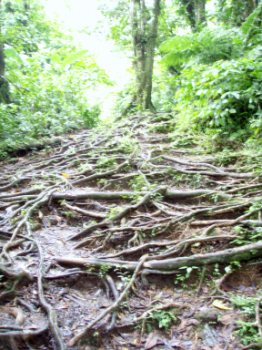
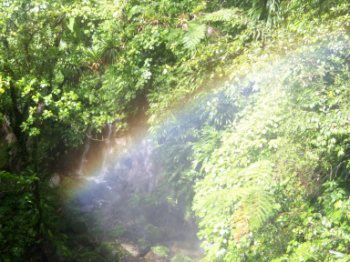
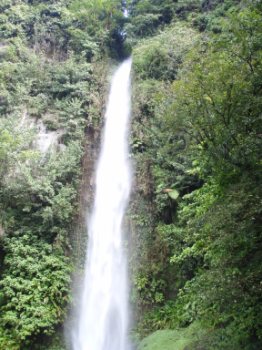
Since the 1980's By the end of the 1980's, the economy recovered, but weakened
again in the 1990's due to a decrease in banana prices. In the January 2000 elections, the Edison James United Workers Party
(UWP) was defeated by the Dominican Labour Party (DLP), led by Roosevelt P.
"Rosie" Douglas. Douglas died after only a few months in office and was replaced
by Pierre Charles, who died in office in January 2004. Roosevelt Skerrit, also
of the DLP, replaced Charles as Prime Minister. Under Prime Minister Skerrit's
leadership, the DLP won elections in May 2005 that gave the party 12 seats in
the 21-member Parliament to the UWP's 8 seats. An independent candidate
affiliated with the DLP won a seat as well. Since that time, the independent
candidate joined the government and one UWP member crossed the aisle, making the
current total 14 seats for the DLP and 7 for the UWP. Skerrit has forged a close
relationship with leftist leaders Fidel Castro and Hugo
Chávez
, which has
resulted in Dominica receiving substantial aid from Cuba and Venezuela. Dominica is set to play a major part in the
Petrocaribe initiative;
crude oil from Venezuela will be stored on the island for distribution to other
islands. Further, the Venezuelan government has given Dominica a US$10.1 million
grant for the expansion of the Melville Hall Airport and forgiven the island nation's US$1.5
million debt to Venezuela. On February 16th 2007 Chávez paid a state visit to
Roseau, a rare visit by a major head of state to the island, where he
inaugurated a fuel storage tank as part of the Petrocaribe
initiative. Skerrit's
administration agreed to join the Bolivarian Alternative for the
Americas. In addition,
Skerrit announced that his government had agreed to the construction of a
$80,000,000USD refinery on the island. The
proposed refinery has prompted criticism from some environmentalist
Geography and climate. Dominica has many waterfalls, springs, and rivers. Some plants
and animals thought to be extinct on surrounding islands can still be found in
Dominica's forests. The volcanic nature of the island and the lack of sandy
beaches has attracted scuba divers. The island has several protected areas,
including Cabrits National Park (own blog). Dominica has 365 rivers.
It is said that when his royal sponsors asked
Christopher Columbus to describe this island in the "New World", he crumpled a
piece of parchment roughly and threw it on the table. This, Columbus explained,
is what Dominica looks like - completely covered with mountains with nary a flat
spot. Morne Trois Pitons National Park is a
tropical forest blended with scenic volcanic features. It was recognized as a
World Heritage Site on April 4, 1995, a distinction it shares with four other
Caribbean islands. The Commonwealth of Dominica
is engaged in a long-running dispute with Venezuela over Venezuela's territorial
claims to the sea surrounding Isla Aves (literally Bird Island, but in fact
called Bird Rock by Dominica authorities), a tiny islet located 140 miles (224
km) west of the island of Dominica.
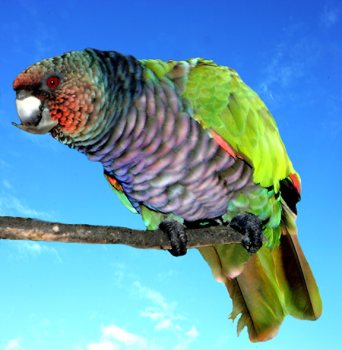
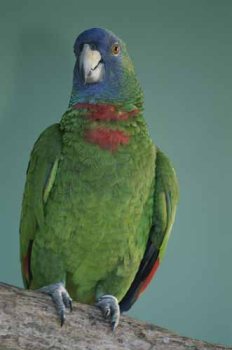

The Sisserou
Parrot
Dominica possesses the most pristine
wilderness in the Caribbean. Originally, it was protected by sheer mountains
which led the European powers to build ports and agricultural settlements on
other islands. More recently, the citizens of this island have sought to
preserve its spectacular natural beauty by discouraging the type of high-impact
tourism which has damaged nature in most of the Caribbean. The Caribbean Sea
offshore of the island of Dominica is home to many
cetaceans. Most notably
a group of sperm whales,
others include spinner dolphins,
pantropical spotted dolphins
and bottlenose dolphins.
Less commonly seen animals include killer whales, false killer whales, pygmy sperm whales, dwarf sperm whales, Risso's dolphins, common dolphins, Atlantic spotted dolphins, humpback whales and Bryde's whales. This makes Dominica a destination for tourists interested in
whale-watching holidays. Driven by ancient impulses, three of
the world’s seven types of sea turtles come to nest on the beaches of the
south-east of Dominica. From late March to October, Rosalie beach sees turtles,
the largest of them, giant thousand pound plus endangered leatherback return to
the home of their birth twenty five to thirty years older to lay their eggs.
Between May and August, sea turtles to nest almost every
night.
Dominica is especially vulnerable to
hurricanes as the island is located in what is referred to as the
hurricane
region. In
1979, Dominica was hit directly by category 5 Hurricane David, causing widespread and extreme damage. On
August 17, 2007, Hurricane Dean, a
category 1 at the time, hit the island. A mother and her seven-year-old son died
when a landslide caused by the
heavy rains fell onto their house. In another incident two people were injured
when a tree fell on their house. Prime Minister Roosevelt
Skerrit estimated
that 100 to 125 homes were damaged, and that the agriculture sector was
extensively damaged, in particular the banana crop.
Etymology. In Latin
, its name
means "Sunday", which was the day on which it was spotted by Christopher
Columbus. Its
pre-Columbian name was
"Wai'tu kubuli", which means "Tall is her body". The Caribs (own blog) have a
territory similar to the Indian Reserves of North America. The official language is English in consequence of its history as a British
colony, territory and state, though a
French creole is spoken by
many, especially people of older generations.

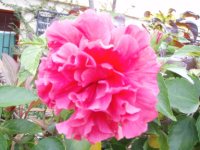
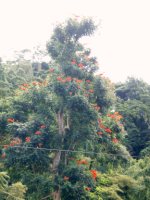
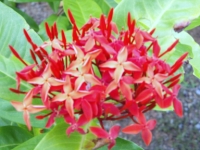

Government and administrative
divisions. Dominica is a parliamentary
democracy within the
Commonwealth of Nations.
Unlike the majority of countries in the Caribbean, the Commonwealth of Dominica
is one of the region's few republics. The president is the head of
state, while
executive power rests with the cabinet, headed by the prime minister. The unicameral parliament consists of
the thirty-member House of Assembly, which consists of twenty-one directly elected members and
nine senators, who may either be appointed by the president or elected by the
other members of the House of Assembly. Unlike
other former British colonies in the region, Dominica was never a Commonwealth
Realm, instead
becoming a republic on
independence. Dominica is a full and participating member of the Caribbean
Community (CARICOM) and the
Organisation of Eastern Caribbean States (OECS). Dominica is also a member of the International
Criminal Court with a
Bilateral Immunity Agreement of protection for the U.S. military, as covered under Article
98. In January
2008 Dominica joined the Bolivarian Alternative for the Americas.
Economy. In 2008, Dominica had one of the lowest per capita GDP (gross domestic
product) rates of Eastern Caribbean states. The country nearly had a financial
crisis in 2003 and 2004, but Dominica's economy grew by 3.5% in 2005 and 4.0% in
2006, following a decade of poor performance. Growth in 2006 was attributed to
gains in tourism, construction, offshore and other services, and some
sub-sectors of the banana industry. The International Monetary
Fund (IMF)
recently praised the Government of Dominica for its successful macroeconomic
reforms. The IMF also pointed out remaining challenges, including the need for
further reductions in public debt, increased financial sector regulation, and
market diversification. Dominica's currency is the East Caribbean Dollar.
Bananas and other agriculture dominate
Dominica's economy, and nearly one-third of the labour force works in
agriculture. This sector, however, is highly vulnerable to weather conditions
and to external events affecting commodity prices. In 2007, Hurricane
Dean caused
significant damage to the agricultural sector as well as the country's
infrastructure, especially roads. In response to reduced European
Union (EU) banana
trade preferences, the government has diversified the agricultural sector by
promoting the production of coffee, patchouli, aloe vera,
cut flowers, and exotic fruits such as mango, guava, and papaya. Dominica has
also had some success in increasing its manufactured exports, primarily
soap.

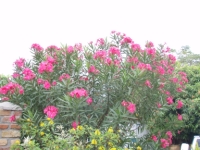
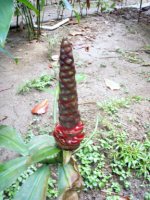
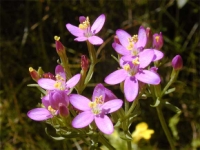
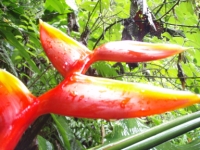
Dominica is mostly volcanic and has few
beaches; therefore, tourism has developed more slowly than on neighbouring
islands. Nevertheless, Dominica's mountains, rainforests, freshwater lakes, hot
springs, waterfalls, and diving spots make it an attractive eco-tourism
destination. Cruise ship stopovers have increased following the development of
modern docking and waterfront facilities in Roseau. Out of twenty two Caribbean
islands tracked, Dominica had the fewest visitors in 2008 (55,800 or 0.3% of the
total). This was about half as many as visited Haiti.
Dominica is a beneficiary of the U.S.
Caribbean Basin Initiative that grants duty-free entry into the United States
for many goods. Dominica also belongs to the predominantly
English-speaking (CARICOM), the CARICOM Single Market and Economy (CSME), and the Organisation of Eastern
Caribbean States (OECS).
Dominica offers tax-free status to companies
locating from abroad. It is not known how many companies benefit from the
tax-free status because of the strict confidentiality the government enforces,
although it is known many Internet businesses utilize Dominica for this reason.
Infrastructure. Air. There are two small
airports on the island. The primary airport, Melville Hall
Airport (DOM), is on
the northeast coast and is about a 45-minute drive from Portsmouth. The second
is Canefield Airport (DCF), about
fifteen minutes from Roseau on the southwest coast. Neither airport is suitable
for commercial jets due to runway length, lack of runway lights, and lack of
instrument landing system, but Melville Hall currently has regular service by
American Eagle and LIAT using twin turboprop aircraft like the De Havilland Dash
8. A runway
extension and service upgrade project began at Melville Hall around 2006 and is
still in progress as of early 2009.
Roads. There is no major highway on
the island. Before the road was built between Portsmouth and Roseau, people had
to take boats, which took several hours. Now, it takes about one hour to drive
from Portsmouth to Roseau. Minibus services form the major public transport
system.
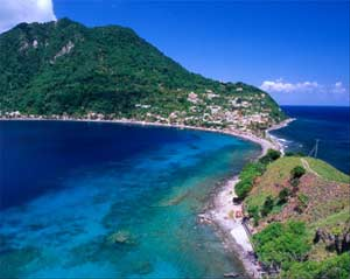
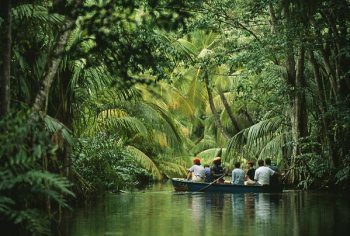

Demographics. There is a significant Mixed minority along with
Indo-Caribbean or East Indian groups, a small European origin minority,
descendants of French, British, and Irish colonists and there are small numbers
of Lebanese, Syrians and Asians. Dominica is also the only Eastern Caribbean
island that still has a population of pre-Columbian native
Caribs (own blog).
There are also about 1,000 medical students from the United States and Canada
who study at the Ross University
School of Medicine in Portsmouth. The population
growth rate of Dominica is very low, due primarily to emigration to other
countries. In the early 21st Century, emigrant numbers for the most popular
countries are as follows: the U.K. (6739), the U.S. (8560), France
(394), and Canada (605).
It has recently been noted that Dominica has a
relatively large number of centenarians. As of March 2007, there are 22 centenarians three times the
average incidence in developed countries. The reasons for this are the subject
of current research being undertaken at Ross University School of Medicine.
About 80% of the population is Roman
Catholic, though in
recent years a number of Protestant churches have been established. There is also a small but
growing Muslim community in
Dominica as the nation's first mosque is currently being built.
English is the official language of
Dominica and is universally spoken and understood. However, because of historic
French occupation during different times in history, and the island's location
between the two French-speaking departments of Martinique and Guadeloupe, Antillean Creole Patois, a French-based creole dialect, is spoken by many people on the island,
especially from the older generation. Because of the decline in its usage by the
younger generation, initiatives have been set up in an effort to increase usage
and save this unique part of the nation's history and culture. The dialect of
Dominica also includes Cocoy,
along with Creole - French-based
patois. Cocoy, or Kockoy, is a mix of Leeward Island English-Creole and
Dominican Creole. It is mainly spoken in the north-eastern villages of Marigot
and Wesley. At the beginning of the Twentieth
Century the Rose's Company which had been producing Rose's lime
juice there saw
demand for its product outgrow the ability to available supply from Montserrat.
Their response to the situation was to buy land on Dominica and encourage
Montserrat farm labourers to relocate. As a result there came to be two
linguistic communities in Dominica. Over time there has been much intermarrying
but there are still traces of difference in origin.
Culture. Dominica is home to a wide range of people. Although it was historically
occupied by several native tribes, the Arawaks and Kalinago.
Carib tribes
remained by the time European settlers reached the island. 'Massacre' is a name
of a river dedicated to the murders of the Native villagers by French and
British settlers, because the river ran red with blood for days. Each (French
and British) claimed the island and imported slaves from Africa.
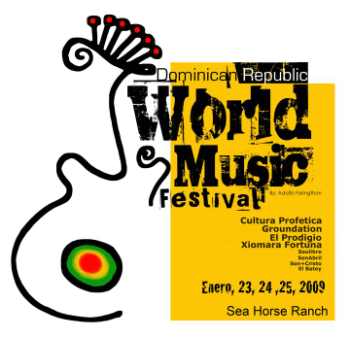
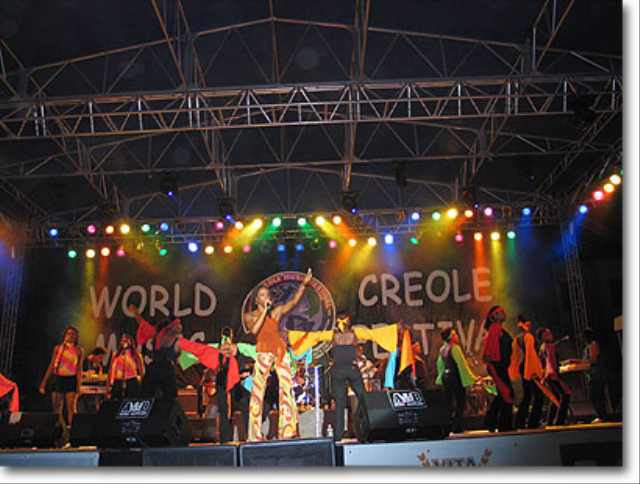
Music and dance are important facets of
Dominica's culture. The annual independence celebrations show an outburst of
traditional song and dance preceded since 1997 by weeks of Creole expressions
such as "Creole in the Park" and the "World Creole Music Festival". Dominica
gained prominence on the international music stage when in 1973, Gordon
Henderson founded the group Exile One and an original musical genre which he coined
"Cadence-lypso" which paved
the way for modern Creole music.
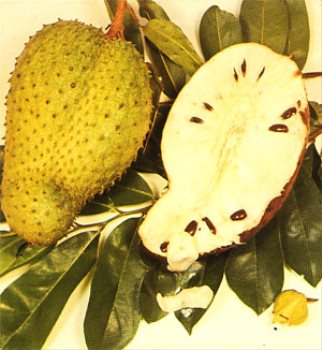


Soursop,
Sorrel and Paw Paw
Dominican cuisine is similar to that of
other Caribbean countries. Common main courses comprise of meat usually chicken,
but can be goat, lamb, or beef, covered in sauce. the sauces are either spicy
pepper sauces, or concoctions made from local fruit. A huge variety of local
fruit, from tamarind to passion fruit, are served on the island, usually in
juice or sauce form. Soursop, is peeled and eaten raw. Sorrel, a red flower that
only blooms around Christmas is boiled into a bright red drink.
Education. The island has its own state college, formerly named Clifton Dupigny Community College. Some
Dominicans get scholarships from the Cuban government to attend universities in Cuba. Others go to the
University of the West Indies or
to schools in the UK, the U.S., or other countries for higher education. Ross
University Medical School, in Portsmouth.
The Archbold Tropical Research and Education Centre, a biological field station owned by Clemson
University, is located at
Springfield Estate between Canefield and Pond Cassé. In 2006, another medical
school called All Saints University of Medicine opened in temporary facilities in Loubiere, with a permanent campus being constructed
in Grand Bay. Currently
All Saints is located in Roseau, Dominica. There is also a marine biology school
in Mahaut, I.T.M.E (Institute for Tropical Marine Ecology), 15 minutes north of
Roseau.
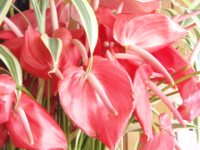
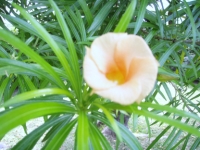
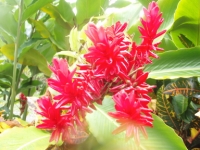
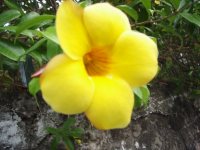
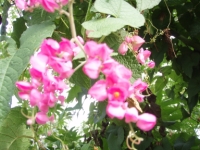
Athletics.
Cricket is a popular
sport on the island, and Dominica competes in Test cricket as part of the West Indies cricket
team. On October
24th, 2007, the 8,000-seat Windsor cricket stadium was completed with a donation of
EC$33 million
(US$17
million) from the
Government of the People's Republic of China.
Notables. Jean
Rhys, novelist, was born
and raised in Dominica. Test cricketers Grayson Shillingford, Irvine
Shillingford, Phillip
DeFreitas and Adam
Sanford were born in
Dominica.
Property and homes can be bought here reasonably easily. The first step, which takes four to
six months is to get Alien Status. If you buy land there is 4% Stamp Duty, 2.5%
Judicial Fees, 1% Assurance Fund and 3% Legal Fees, thus 10.5%. To buy a
property the total costs come to 20.5%. Many people love the island because they
see it and the people as unspoilt. There are no major hotels on the island.
Tourists are made up of yachties and the day-long visits from many cruise ships.
What will happen after airport expansion and the refinery is built we wait to
see.

ALL IN ALL an island that has
made us incredibly
welcome.









































